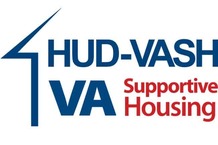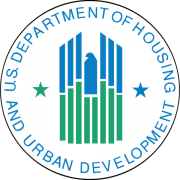
Continuum of Care Rental Assistance Program
The Continuum of Care Program was created under the McKinney Homeless Assistance Act. Continuum of Care is designed to promote permanent housing with supportive service to persons with disabilities coming from the streets and emergency shelters. Continuum of Care grants require a supportive services match equal to, or greater than, the Housing Choice Voucher (HCV) rental assistance award.
HUD selects projects for Continuum of Care funding in a national competition based on regional and national homeless assistance goals. The Housing Authority chooses projects to include in an application to HUD through a Request For Proposals (RFP) and evaluation process. Selected applicants receive rental assistance on behalf of a homeless tenant for five years. The grants provide for a variety of housing rental situations, Tenant-Based (TRA), Sponsor-Based (SRA), Project-Based (PBA), and an SRO MRP Based Rental Assistance component. If a Continuum of Care applicant proposes to fund rehabilitation efforts for project-based units, the Housing Choice Voucher (HCV) rental assistance award is for ten years.
Who is eligible?
To be eligible for the program, a person must be homeless (see definition below), with a mental illness, substance abuse problem, HIV/AIDS or a dual diagnosis, and must be referred by the community-based organization which provides supportive services under contract with the Housing Authority’s Continuum of Care program. Applications received from these agencies are reviewed for Continuum of Care eligibility.
Homeless includes a family or individual who lacks a fixed, regular and adequate nighttime residence; and has a primary nighttime residence that is:
- A supervised publicly or privately operated shelter designed to provide temporary living accommodations (including welfare hotels, congregate shelters, and transitional housing for the mentally ill); or
- An institution that provides a temporary residence for persons intended to be institutionalized; or
- A public or private place not designed for, or ordinarily used as, a regular sleeping accommodation for human beings (street, park, hallway, freeway underpass).
The term “homeless” or “homeless individual” does not include any individual imprisoned or otherwise detained pursuant to an Act of Congress or a State law.

Helping Veterans Achieve Housing Stability
– The Veterans Affairs Supporting Housing (VASH) Voucher Program
The HUD-Veterans Affairs Supportive Housing (HUD-VASH) program combines Housing Choice Voucher (HCV) rental assistance for homeless Veterans with case management and clinical services provided by the Department of Veterans Affairs (VA). VA provides these services for participating Veterans at VA medical centers (VAMCs) and community-based outreach clinics.
Every year since 2008, HUD and VA have awarded HUD-VASH vouchers based on geographic need and public housing agency (PHA) administrative performance. The allocation process for HUD-VASH vouchers is a collaborative approach that relies on three sets of data: HUD’s point-in-time data submitted by Continuums of Care (CoCs), VAMC data on the number of contacts with homeless Veterans, and performance data from PHAs and VAMCs. After determining which areas of the country have the highest number of homeless Veterans, the VA Central Office identifies VA facilities in the corresponding communities. HUD then selects housing authorities near to the identified VA facilities, taking into consideration the housing authority’s administrative performance, and sends the housing authorities invitations to apply for the vouchers. There is at least one site in each of the 50 states, in the District of Columbia, Puerto Rico and Guam.
HACCC has received thirteen separate awards of HUD-VASH vouchers to assist homeless veterans in Contra Costa County. In total, HACCC administers 478 HUD-VASH vouchers
HUD-VASH is a joint program with HUD, Veterans Affairs (VA) and local housing authorities.
HUD-VASH vouchers provide tenant-based permanent supportive housing to chronically homeless veterans. Eligible homeless veterans are referred to HACCC by the VA medical center in Martinez, CA. Case management and other supportive services are provided by the VA medical center.
Eligibility:
- The VAMC in Martinez will determine eligibility of homeless veterans and families for the Program.
- HACCC will determine eligibility for the rental subsidy in accordance with the Housing Choice Voucher Program and HUD-VASH program guidelines.
Family Obligations:
- As a condition of continuing participation in the HUD-VASH Program, an eligible individual and/or family must receive case management services from the VAMC.
- The HUD-VASH rental subsidy is terminated if the individual and/or family fails to participate in case management, without good cause, as verified by the VAMC.

Mainstream Voucher Program
The Mainstream Voucher Program offers Housing Choice Voucher rental assistance to non-elderly persons with a disability. This program receives specially targeted funding from the Department of Housing and Urban Development (HUD). The Mainstream Program is a partnership between the Housing Authority of the County of Contra Costa and Contra Costa Health, Housing and Homeless Services and the Housing Consortium of the East Bay who provide supportive services to persons with disabilities.
This program currently offers 222 Vouchers to non-elderly persons with disabilities and is administered through the HACCC’s Housing Choice Voucher waiting list.

Stability Voucher Program
Overview
The Stability Voucher initiative makes Housing Choice Voucher (HCV) assistance available to Public Housing Agencies (PHAs) in partnership with local Continuum’s of Care and/or Victim Service Providers to assist households experiencing or at risk of homelessness, those fleeing or attempting to flee domestic violence, dating violence, sexual assault, stalking, human trafficking, and veterans and families that include a veteran family member that meets one of the proceeding criteria.
Who is Eligible?
Only households who meet the criteria above and are referred by Contra Costa County’s Continuum of Care’s Coordinated Entry Services are eligible to receive a Stability Voucher.
Any household currently on the HACCC’s Housing Choice Voucher Program waiting list is eligible to contact the Continuum of Care’s Coordinated Entry Services for evaluation and receive a direct referral to HACCC for voucher assistance.
This program currently offers 41 Stability Vouchers, 25 of which have been project-based, to eligible households referred through the Continuum of Care’s Coordinated Entry Services and is administered through the HACCC’s Housing Choice Voucher program.

Family Unification Program (FUP)
Overview
The Family Unification Program (FUP) was authorized by Congress in 1990 to help preserve and reunify families. FUP youth vouchers are limited by statute to a period between 36 and 60 months of housing assistance. HACCC partners with Contra Costa County Employment and Human Services Department (EHSD) who is responsible for determining the family or youth meets FUP eligibility requirements and referring them to HACCC’s FUP program, as well as providing supportive services to FUP-eligible youth. Once a referral is received, HACCC places the FUP family or youth on the PHA’s waiting list and determines whether they are eligible to receive assistance under the PHA’s HCV program. Services offered include: information or counseling on money management, use of credit, housekeeping, proper nutrition or meal preparation, and access to health care (e.g., doctors, medication, and mental and behavioral health services); Counseling on compliance with rental lease requirements and with HCV program participant requirements; and Job preparation and attainment counseling; Educational and career advancement counseling. FUP youth are also given an opportunity to enroll in the Family Self-Sufficiency program. HACCC has been allocated 18 FUP vouchers, and 10 of them are currently being used for FUP-Youth.
Who is Eligible?
FUP family assistance is reserved for eligible families for whom the lack of adequate housing is a primary factor in:
- The imminent placement of the family’s child or children in out-of-home care; or
- The delay in the discharge of the child or children to the family from out-of-home care.
Youth eligible for FUP are those who:
- Are at least 18 years old and less than 25 years of age
- Have left foster care or will leave foster care within 90 days
- Are homeless or at risk of becoming homeless.
- Does not have sufficient resources or support networks (e.g., family, friends, faith-based or other social networks) immediately available to prevent them from moving to a supervised publicly or privately operated shelter designed to provide temporary living arrangements.

Foster Youth to Independence Initiative (FYI)
HACCC has implemented a Foster Youth to Independence (FYI) program in partnership with the Contra Costa County Employment and Housing Services Department (EHSD). The FYI initiative allows HACCC to request targeted HCVs to serve eligible youth with a history of child welfare involvement that are homeless or at risk of being homeless. Rental assistance and supportive services are provided to qualified youth for a period of between 36 and 60 months. The Contra Costa County Department of Health, Housing and Homeless Services provides supports to EHSD in the way of referrals of eligible youth as well as navigation assistance where needed. HACCC has been awarded 31 FYI vouchers to date.

Emergency Housing Vouchers
The Emergency Housing Voucher (EHV) program was funded through the American Rescue Plan Act of 2021. Through the EHV program, HUD provided HACCC with 201 emergency housing vouchers in order to assist individuals and families who are homeless, at-risk of homelessness, fleeing, or attempting to flee, domestic violence, dating violence, sexual assault, stalking, or human trafficking, or were recently homeless or have a high risk of housing instability. Because the EHV Program had a limited funding period, HACCC is not authorized to issue new vouchers or re-issue turnover vouchers.
HOUSING AUTHORITY OF
THE COUNTY OF CONTRA COSTA
3133 ESTUDILLO ST, MARTINEZ, CA 94553

